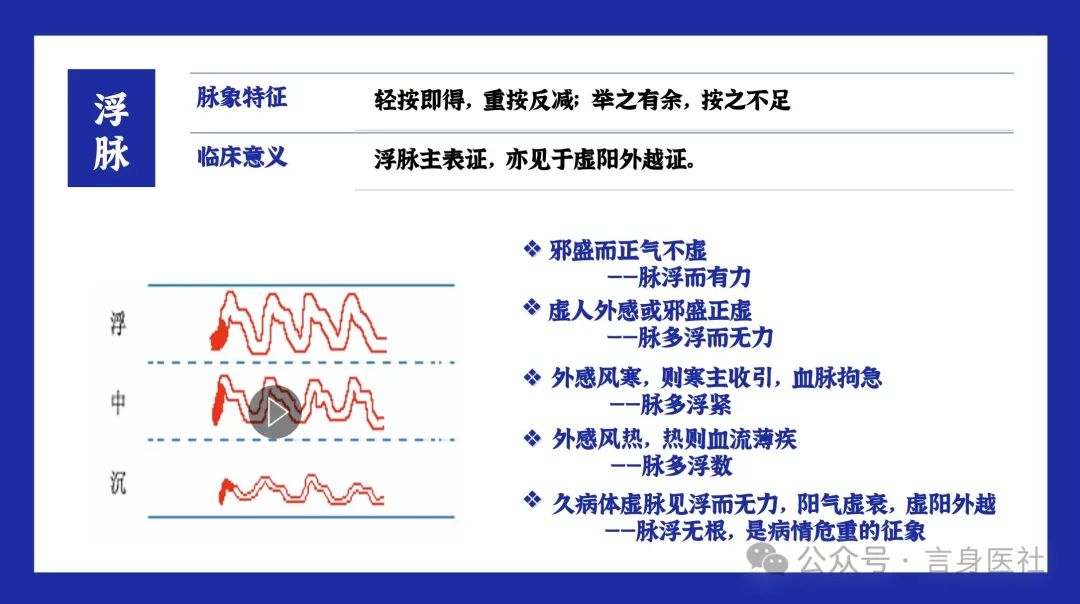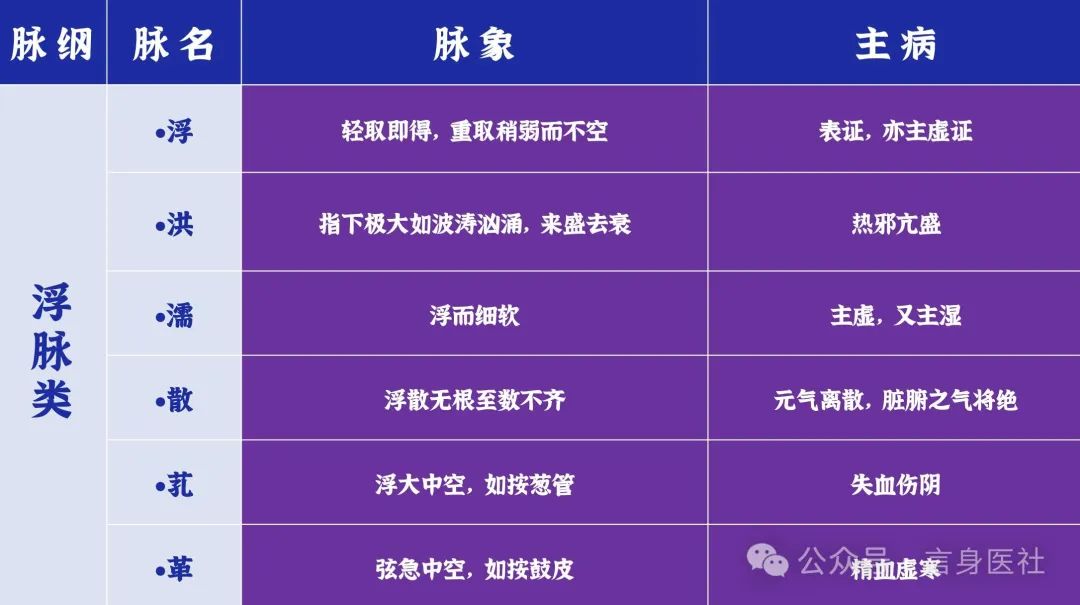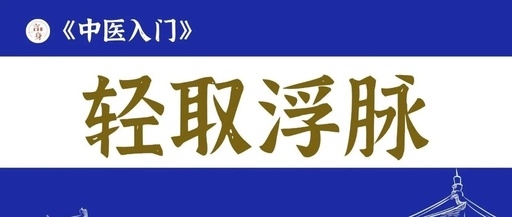
Little Wang sat aside, his eyes shining with admiration. He had just started learning Traditional Chinese Medicine (TCM) from Teacher Xie, but he was already deeply attracted to this ancient and mysterious medicine. Today, he specifically organized some questions about pulse diagnosis to consult Teacher Xie.
“Little Wang,” Teacher Xie suddenly looked up and asked gently, “Do you have any questions for me today?”
Upon hearing this, Little Wang quickly opened his notebook and respectfully said, “Teacher Xie, I would like to ask about the knowledge related to ‘floating pulse’. I read some content in the book, but I don’t quite understand it, and I would like to hear your insights.”
Lightly taken, it is easily felt; pressed heavily, it slightly diminishes but does not disappear; raised, it is abundant; pressed, it is insufficient.
Teacher Xie smiled slightly, nodded, and gestured for him to continue. Little Wang opened the book and began to read aloud: “The book states that the characteristics of floating pulse are ‘lightly taken, it is easily felt; pressed heavily, it slightly diminishes but does not disappear; raised, it is abundant; pressed, it is insufficient.’ I understand that floating pulse can be felt at a shallower level, but why does this phenomenon occur?”
Teacher Xie closed the book in his hands, his gaze gentle yet rigorous. His voice was deep and magnetic, as if conveying some ancient wisdom: “Floating pulse, as the name suggests, refers to the pulse floating on the surface. In simple terms, floating pulse is a relatively superficial pulse. When we lightly press the patient’s pulse, we can easily feel the pulse’s beating. If we continue to press harder, the pulse’s beating will weaken but will not completely disappear. This is because the pulse wave of floating pulse mainly occurs in the subcutaneous shallow layer, significantly influenced by the skin and muscles.”
Listening to Teacher Xie’s explanation, Little Wang’s brow slightly relaxed, and his pen quickly recorded every word from Teacher Xie. The tip of the pen made a rustling sound on the paper, as if each note he took was a gathering of ancient wisdom.
For example, when there is an external invasion of wind-cold or wind-heat, the patient’s defensive qi (wei qi) fights against the evil externally, thus the pulse qi is buoyant on the surface, resulting in a floating pulse.
Teacher Xie continued, “Clinically, floating pulse is often seen in ‘exterior syndromes’, which occur when the body’s surface is invaded by external pathogens. For instance, when there is an external invasion of wind-cold or wind-heat, the patient’s defensive qi fights against the evil externally, causing the pulse qi to be buoyant on the surface, hence the floating pulse. As stated in the ‘Nanjing’: ‘Floating means the pulse travels on the flesh.’ This pulse reflects the internal movement trend of qi and blood towards the exterior.When the external pathogen is strong but the righteous qi has not been weakened, the pulse will appear floating and strong; if a person with a weak constitution is affected by an external pathogen, or if the righteous qi is weak, the pulse will usually be floating and weak. For example, during an external invasion of wind-cold, the cold will cause blood vessels to constrict and tense, so the pulse is often floating and tight; whereas in the case of an external invasion of wind-heat, the heat accelerates blood flow, resulting in a floating and rapid pulse.“
Little Wang nodded and continued to ask, “Does floating pulse necessarily mean the patient has an external invasion? For instance, sometimes when I diagnose patients with a weak constitution, I also feel the presence of floating pulse.”
Deficiency syndromes can also present with floating pulse, especially in patients with chronic illness; if a floating pulse is observed without strength, it may indicate the manifestation of deficient yang escaping externally.
Teacher Xie showed a approving smile, clearly pleased with Little Wang’s keen observation. He gently stroked his beard and replied, “Your question is very important. Floating pulse does not always indicate an external invasion, as TCM emphasizes the combination of ‘syndrome’ and ‘pulse’. Deficiency syndromes can also present with floating pulse, especially in patients with chronic illness; if a floating pulse is observed without strength, it may indicate the manifestation of deficient yang escaping externally. In this case, the floating pulse is a sign of worsening condition, as the saying goes, ‘In chronic illness, encountering it can be alarming.’ In such cases, the pulse is floating and weak, scattered and rootless, reflecting the outward dispersion of the body’s yang qi.”
He looked down at his thick notebook, silently vowing to work harder in the future to pass on this valuable knowledge. At this moment, he seemed to see a long road of learning ahead, filled with unknown challenges and opportunities, but also filled with infinite hope.

Teacher Xie seemed to see through Little Wang’s thoughts, smiling as he patted his shoulder: “Little Wang, don’t rush, take your time. TCM emphasizes ‘accumulation’; each learning experience lays the foundation for your future diagnosis. As long as you have faith in your heart and continue to improve, one day you will have your own insights and understanding.”
Little Wang nodded deeply, his eyes shining with determination.
“Teacher Xie, I will remember your teachings, and step by step, I will move forward,” he said, his tone filled with resolve.
Teacher Xie smiled slightly, his gaze filled with expectations and hopes for this young student. He picked up the book again and softly said, “Alright, let’s conclude today’s lesson here. Go back and digest this content well, and come back tomorrow to discuss other pulse types with me. The world of TCM is as deep as the sea; you have just begun to explore it.”
Little Wang stood up, bowed, and gratefully said, “Thank you, Teacher Xie. I will definitely come on time tomorrow.”
As he left the clinic, the rain had stopped, and a faint scent of grass filled the air. Little Wang walked on the wet street, feeling exceptionally calm. He tightly held his notebook, as if what was recorded inside was not just knowledge of TCM, but also Teacher Xie’s teachings and expectations for him.

He knew that although the path of TCM was long, with a good teacher like Teacher Xie guiding him, he would surely be able to walk steadily and firmly.


